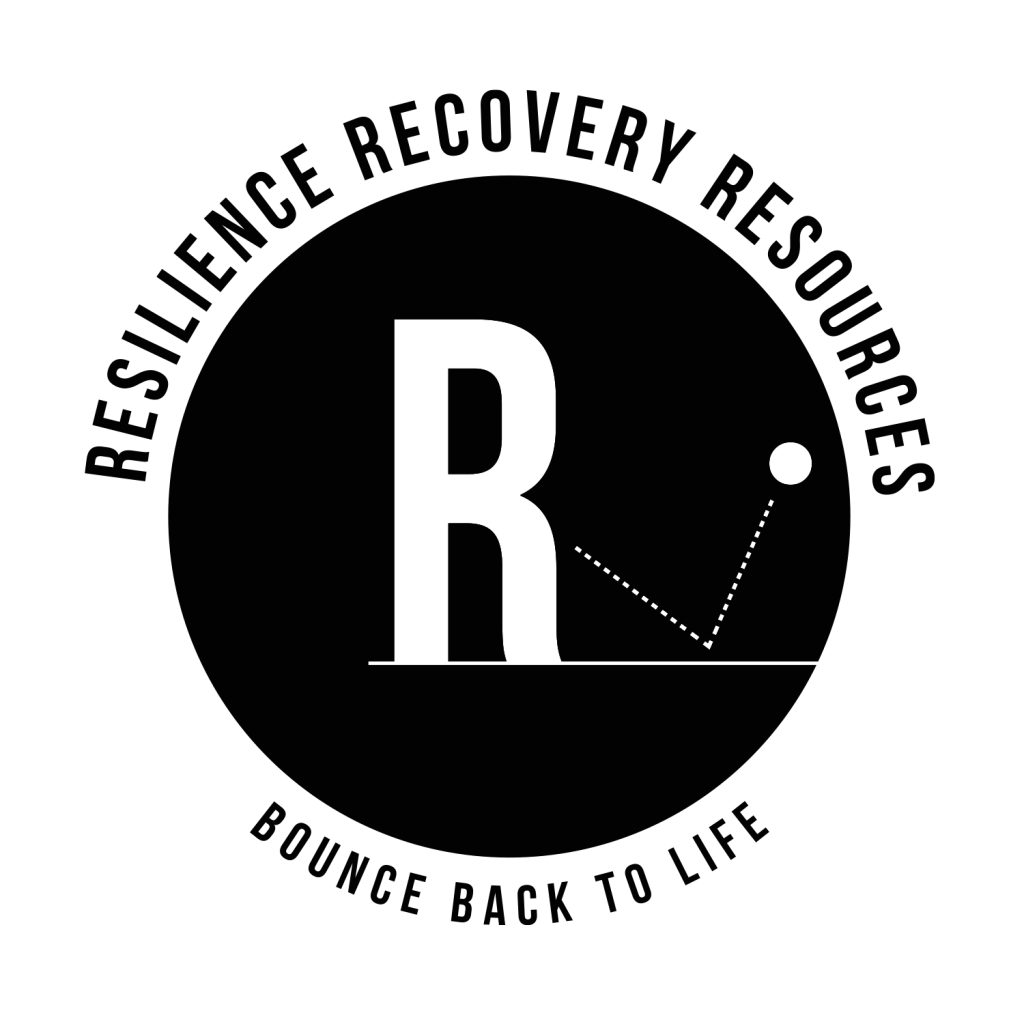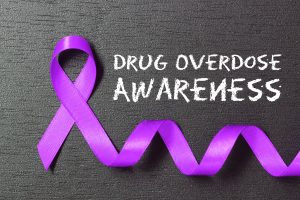If you’re a parent of a teenage or young adult son, you know that adolescence and early adulthood bring natural changes in behavior, mood, and social patterns. However, distinguishing between typical developmental phases and warning signs of substance abuse can be challenging. At Resilience Recovery Resources, we specialize in helping families understand these differences and provide evidence-based treatment when concerns arise.
Recognizing the early signs of drug use is critical. Research from the National Institute on Drug Abuse (NIDA) shows that early intervention significantly improves long-term recovery outcomes, particularly for adolescents whose brains are still developing. Understanding what to look for can help you take action before experimentation becomes dependency.
Understanding Drug Use in Male Teens and Young Adults
Substance abuse affects young people across all demographics, but research indicates that males often present with different patterns and warning signs than females. According to the Substance Abuse and Mental Health Services Administration (SAMHSA), young males are statistically more likely to engage in binge drinking and use illicit drugs, yet they’re also less likely to seek help due to cultural expectations around masculinity and self-reliance.
Males between ages 14-28 face unique pressures—from athletic performance expectations to social hierarchies and emotional suppression. These factors can contribute to substance use as a coping mechanism. Understanding how drug use manifests specifically in this population can help parents identify problems earlier and connect their sons with appropriate treatment.
Behavioral Warning Signs
Behavioral changes are often the first noticeable indicators that something is wrong. While some mood swings and social changes are developmentally normal, certain patterns warrant closer attention.
Changes in Social Circles and Activities
One of the most telling signs is a sudden shift in friend groups, especially when your son becomes secretive about who he’s spending time with or where he’s going. Young people using substances often gravitate toward peers who share similar behaviors. You might notice him abandoning longtime friends, previously enjoyed hobbies, or extracurricular activities—particularly sports or academic pursuits he once valued.
Academic or Work Performance Decline
Substance use frequently impacts cognitive function, motivation, and attendance. Teachers may report increased absences, missed assignments, declining grades, or behavioral problems at school. For young adults, you might notice poor performance at work, frequent tardiness, or unexplained job losses. The Centers for Disease Control and Prevention (CDC) reports that substance use is strongly correlated with academic underachievement and increased dropout rates.
Increased Secrecy and Deceptiveness
If your son has become unusually private—locking doors constantly, making secretive phone calls, or becoming defensive when asked simple questions—this change in communication patterns may signal something more serious. Lying about whereabouts, activities, or money becomes common as substance use progresses.
Financial Issues
Unexplained requests for money, missing cash or valuables from the home, or selling personal possessions can all indicate drug use. Many young people funding a substance habit will steal from family members before seeking other sources.
Physical Warning Signs
Physical symptoms vary depending on the substance being used, but several general indicators apply across different drugs.
Changes in Appearance and Hygiene
A previously well-groomed young man who suddenly neglects personal hygiene, stops caring about his appearance, or wears the same clothes repeatedly may be struggling with substance abuse. Bloodshot or glassy eyes, unusual pupil size (either pinpoint or dilated), and frequent nosebleeds can indicate specific drug use.
Sleep Pattern Disruptions
Substance use often causes dramatic sleep changes. Stimulants like cocaine or methamphetamine may cause insomnia and hyperactivity, while opioids and marijuana typically cause excessive sleeping or lethargy. You might notice your son staying up all night and sleeping through the day, or appearing constantly exhausted despite adequate sleep opportunities.
Weight and Appetite Changes
Significant unexplained weight loss or gain, loss of appetite, or sudden intense cravings for specific foods can signal drug use. Stimulants typically suppress appetite and cause weight loss, while marijuana often increases appetite. Opioid use may cause both appetite suppression and gastrointestinal issues.
Physical Coordination Issues
Slurred speech, impaired coordination, tremors, or unusual body odor (beyond typical adolescent hygiene issues) are physical manifestations of substance use. According to NIDA research, certain substances leave distinct physical markers that trained professionals can identify.
Psychological and Emotional Warning Signs
The psychological impact of substance abuse in teens and young adults can be particularly concerning, as this age group is already navigating significant developmental changes.
Mood Swings and Irritability
While moodiness is common in adolescence, extreme or rapid mood swings—from euphoria to depression, or from calm to aggressive—may indicate substance use. Young males using drugs often display increased irritability, hostility, or aggressive behavior, particularly when questioned about their activities or when unable to access substances.
Anxiety and Paranoia
Unexplained anxiety, paranoia, or fearfulness can emerge with regular drug use. Your son might seem constantly on edge, worried about being caught, or suspicious of others without reasonable cause. These symptoms often intensify as substance use progresses.
Depression and Withdrawal
Co-occurring mental health conditions are extremely common with substance abuse. The National Institute of Mental Health (NIMH) reports that approximately half of individuals with substance use disorders also experience mental health conditions like depression or anxiety. You might notice your son withdrawing from family activities, expressing hopelessness, or losing interest in everything he once enjoyed.
Personality Changes
A fundamental shift in personality—becoming more rebellious, defiant, or displaying values drastically different from those he previously held—can indicate substance abuse. This goes beyond typical teenage rebellion and represents a more profound character change.
Substance-Specific Warning Signs
Different drugs produce distinct symptoms. Understanding these can help you identify what substance your son might be using.
Marijuana
Red or bloodshot eyes, increased appetite, dry mouth, slowed reaction time, impaired coordination, and a distinctive smell on clothing or in personal spaces are common indicators. Paraphernalia might include rolling papers, pipes, or vape devices.
Alcohol
Smell of alcohol on breath or clothing, slurred speech, impaired coordination, memory problems, and finding hidden alcohol containers are key signs. According to SAMHSA, underage drinking remains a significant concern, with binge drinking particularly common among young males.
Opioids (Including Prescription Painkillers)
Constricted pupils, drowsiness, slowed breathing, constipation, and needle marks are indicators of opioid use. With the ongoing opioid epidemic, the CDC emphasizes vigilance around prescription medications and awareness of fentanyl contamination in counterfeit pills.
Stimulants (Cocaine, Methamphetamine, Prescription Stimulants)
Dilated pupils, increased energy followed by crashes, reduced appetite, rapid speech, erratic behavior, paranoia, and dental problems (particularly with methamphetamine) characterize stimulant use.
Synthetic Drugs and Vaping
Synthetic cannabinoids, synthetic cathinones (bath salts), and other designer drugs produce unpredictable effects including severe agitation, paranoia, and dangerous physical symptoms. Be aware that fentanyl is increasingly found in vapes and counterfeit products, creating life-threatening risks.
Why Early Intervention Matters
The adolescent and young adult brain continues developing until approximately age 25, with the prefrontal cortex—responsible for decision-making, impulse control, and risk assessment—maturing last. Substance use during this critical developmental period can cause lasting cognitive impairments and increase addiction risk.
NIDA research demonstrates that individuals who begin using substances before age 15 are significantly more likely to develop substance use disorders later in life compared to those who delay use until adulthood. Early intervention not only addresses current substance use but also protects ongoing brain development and reduces long-term addiction risk.
The Importance of Male-Focused Treatment
Young males face unique challenges in recognizing and addressing substance abuse. Cultural expectations often discourage emotional expression and help-seeking behavior in males, leading many to suffer in silence or mask their struggles with substances. Depression in young men, for example, may present differently than in females—manifesting as irritability, aggression, or risk-taking rather than sadness.
At Resilience Recovery Resources, our programs are specifically designed for adolescent males (ages 14-17) and young adult males (ages 18-28), addressing the developmental and cultural factors unique to this population. Our treatment approach acknowledges that males often respond differently to therapeutic interventions and benefit from environments where they can explore vulnerability in age-appropriate, male-focused settings.
What to Do If You Suspect Drug Use
If you’ve noticed multiple warning signs in your son, taking action quickly is essential. Here’s how to approach this challenging situation:
Start with a Calm, Non-Confrontational Conversation
Choose a time when your son is sober and you’re both calm. Express your concerns using specific observations rather than accusations. Use “I” statements like “I’ve noticed you seem more tired lately” rather than “You’re obviously using drugs.”
Listen Without Judgment
Young males are particularly sensitive to feeling judged or lectured. Create space for honest conversation by listening more than talking. Understanding the underlying reasons for substance use—whether peer pressure, mental health struggles, academic stress, or trauma—is crucial for effective intervention.
Seek Professional Assessment
Even if you’re unsure whether substance use is occurring, a professional assessment can provide clarity. Our team at Resilience Recovery Resources offers comprehensive evaluations that identify not only substance use but also co-occurring mental health conditions like anxiety or depression that may be driving the behavior.
Don’t Wait for Rock Bottom
A common misconception is that someone must hit “rock bottom” before treatment can be effective. Research consistently shows the opposite—early intervention produces better outcomes. The progression of addiction can be rapid, particularly in young people, and waiting can result in serious consequences including overdose, legal problems, academic failure, or lasting health impacts.
Treatment Options at Resilience Recovery Resources
When substance use requires professional intervention, having appropriate treatment options is critical. At Resilience Recovery Resources in West Palm Beach, we offer comprehensive substance abuse treatment tailored to the developmental needs of adolescent and young adult males.
Partial Hospitalization Program (PHP)
Our PHP program provides intensive, structured treatment while allowing clients to return home in the evenings. This level of care is appropriate for individuals who need significant support but don’t require 24-hour medical supervision.
Intensive Outpatient Program (IOP)
The IOP program offers flexibility for young adults balancing treatment with school or work responsibilities. Clients attend therapy sessions several times weekly while maintaining their daily routines.
Sober Living
For young adults needing a structured, substance-free environment, our sober living program provides community support and accountability during the transition from intensive treatment to independent living.
Trauma-Informed Care
Many young males struggling with substance abuse have underlying trauma. Our trauma treatment program addresses these root causes using evidence-based approaches that recognize the connection between past experiences and current behaviors.
Evidence-Based Therapeutic Approaches
Our treatment programs incorporate proven therapeutic modalities specifically effective for adolescent and young adult males:
- Cognitive Behavioral Therapy (CBT): Helps identify and change thought patterns that contribute to substance use
- Dialectical Behavior Therapy (DBT): Teaches emotional regulation and distress tolerance skills
- Motivational Interviewing: Enhances internal motivation for change
- Family Therapy: Addresses family dynamics and builds healthy communication patterns
- Group Therapy: Provides peer support and reduces isolation
According to SAMHSA’s evidence-based practice guidelines, comprehensive treatment addressing both substance use and co-occurring mental health conditions produces the best long-term outcomes for young people.
Moving Forward: Hope and Recovery
Discovering that your son may be using drugs is frightening, but it’s important to remember that adolescent and young adult substance abuse is treatable. With appropriate intervention, most young people achieve lasting recovery and go on to lead healthy, productive lives.
The key is acting on your concerns rather than hoping the problem will resolve itself. Trust your instincts as a parent—if something feels wrong, it probably is. Early recognition of warning signs, combined with compassionate professional support, gives your son the best chance at a full recovery.
At Resilience Recovery Resources, we understand the unique challenges facing adolescent and young adult males struggling with substance abuse. Our male-focused programs provide the specialized care necessary for lasting change, addressing not just the substance use but the underlying factors driving it.
Take the First Step Today
If you’ve recognized warning signs of drug use in your son, don’t wait to seek help. Early intervention can prevent the progression of substance use disorder and protect your son’s future. Our experienced team is here to answer your questions, provide professional assessment, and guide you toward appropriate treatment options.
Contact Resilience Recovery Resources today at 561-566-5480 to speak with one of our specialists. We serve families throughout West Palm Beach, Palm Beach County, and surrounding areas including Boynton Beach, Palm Beach Gardens, and Delray Beach. Your son’s recovery starts with one phone call.
Resources:
- National Institute on Drug Abuse (NIDA): https://www.drugabuse.gov/
- Substance Abuse and Mental Health Services Administration (SAMHSA): https://www.samhsa.gov/
- National Institute of Mental Health (NIMH): https://www.nimh.nih.gov/
- Centers for Disease Control and Prevention – Substance Use: https://www.cdc.gov/substance-use/
- SAMHSA National Helpline: 1-800-662-4357




